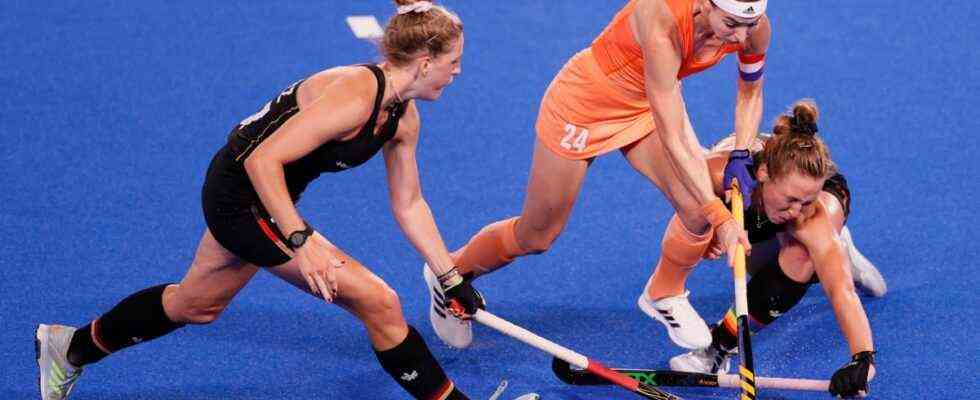Coaches are often also rhetorically gifted, they have to convince their players, and sometimes they are so good at their subject that external observers also adopt their point of view. In any case, at the end of the final Olympic women’s hockey match, the reporter believed that the game that had just ended had ended with a victory for the Germans. The result was 3: 1 (2: 1) for the Netherlands.
But the two numbers with the colon in between were only half the story in this case. In fact, as Xavier Reckinger, the coach of the German women, put it, this game was about other things as well. First of all, there was nothing earth-shattering at stake, his team had won all four games before and had long since qualified for the quarter-finals. What they had aimed at against the Netherlands was certainly a victory, but first and foremost they wanted to learn, and to do so in the long term. This effect was achieved with the usual formula: kickback, recognition, counter-holding, kicking back – at least a little. The defeat, said Reckinger, “was not a step backwards today, we have to thank Holland”.
The second in the final table is against Argentina on Monday. And then the entire team has to be awake from the start, demanded striker Lisa Altenburg. She was hard on the team and thus also on herself: “We showed way too much respect in the first quarter, we were almost afraid, they almost rolled us over.” Sure, the Netherlands are kind of fearful opponents, which means they didn’t have to try too hard, because the German players lost the thread of their own accord. Too often they did not stand in their positions, did not move up, did not combine, and lost the ball due to technical errors.
The result: The 1-0 through a cleanly transformed, not even ingenious penalty corner. This in itself is an indication of too much respect, because it is often triggered by a shot in the leg, and this happens because the opponent was not consistently kept away from the circle. The second hit was even more painful, as Oranje was allowed to dribble across the right undisturbed to the baseline and then continue towards the German goal, cross pass and transform. Altenburg again: “You can’t approach a game like that against such an opponent.”
The feared opponent now has problems himself
That’s how it often ended recently against the Netherlands, which is why this game had a special meaning. The question was whether the team could turn a deficit against their neighbors, whether they could convert the feeling of failure into self-confidence. The pressure on Saturday remained high, but then a first breakthrough came. In the recent past, penalty corners were not the strong point of the Germans, the quick passing, hanging up and shooting failed too often. Now the first was sitting right away – “We can take that with us as a positive,” said Altenburg.
The next step, namely the 2: 2, did not succeed, but it was understood by the coach and the players as a lesson, which is why they tried to access the ball, space and events after half-time. And it worked out quite well. For more than 20, almost 25 minutes, the feared opponent had problems himself and could hardly get out of his own half, because the Germans infected each other with successful scenes and more precise passing games. In the end, they worked out the opportunity to equalize, again with a penalty corner. The shot got stuck, but the chance itself was a success – because against the Netherlands.
Reckinger and his team were grateful because their opponent had done them a favor. The team around captain Nike Lorenz won throughout the preliminary round, was in the table, but not progressed in their own style of play. “Now we have been shown our construction sites”, Altenburg explained. The third goal that fell after a counterattack had underlined this. It looks like Reckinger’s ensemble has to continue this learning process, first on Monday, against world number one Argentina.

